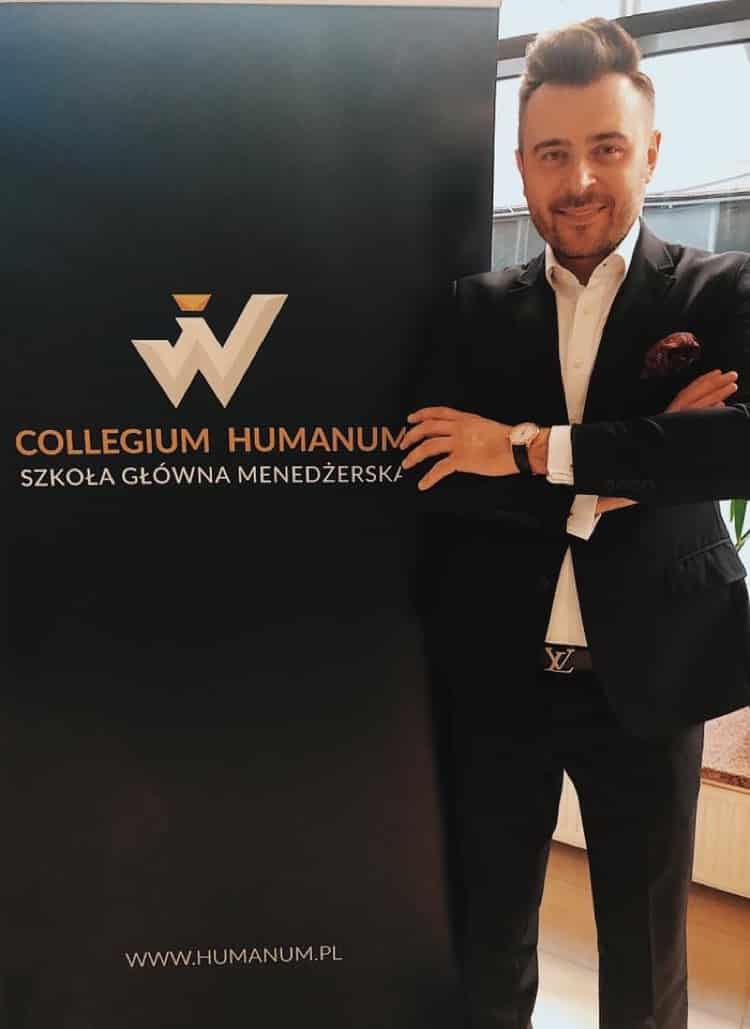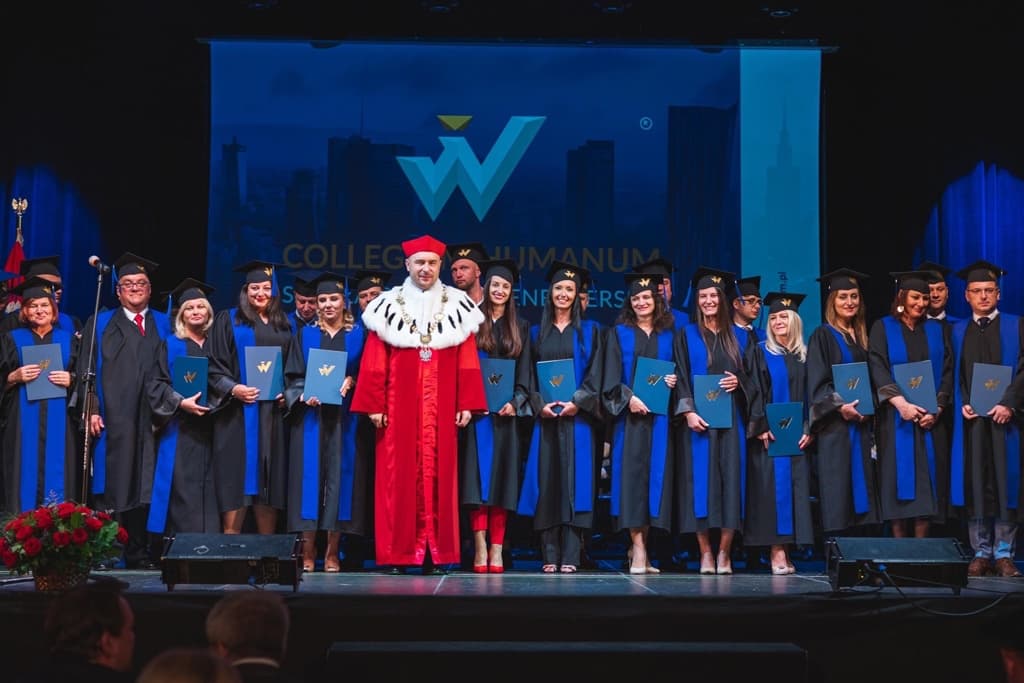An interview with dr hab. Paweł Czarnecki, HM Rector Collegium Humanum
“GOOD MBA DEGREE SHOULD CONNECT THE PRESENT AND THE FUTURE”
Professor dr hab. Paweł Czarnecki, HM Rector at the Collegium Humanum, is talking to CEOWORLD Magazine Editor-in-chief dr Milena Golda about what constitutes good MBA programmes, deliberating how much their ranking depends on the university’s exclusive ability to create independent and innovative paths of education, taking into account the latest achievements and trends in the modern economy as well as very local aspects.
Some pundits admit that the traditional formula of MBA programmes has been exhausted and that they no longer meet their function in the modern world. What are the reasons of such remarks? Are their authors really right?
PAWEŁ CZARNECKI: I think that these opinions might largely came from the fact that when it comes to the traditional method of analysis during the MBA programme of education, the so-called case studies mainly related to global enterprises and the global scale of various operations performed by them.
Meanwhile, current market trends do unambiguously indicate the need for an in-depth analysis of business operations concentrated on the local scale. However, it is difficult to disagree with the statement that the traditional method of analysis we are talking about here has been somehow exhausted. The nature of managerial studies in Poland, located in the center of Europe, should build a business identity, combining local conditions with the strategies of the best enterprises in the West.
In our opinion, presenting the functioning of multinational corporations is an important element when it comes to the formation of an image of the main management concepts. In cases of local enterprises, though, their often insufficiently developed structures and management processes do not really allow for the demonstration of a full spectrum of activities focused on conducting effective business practices. Not all projects carried out on a local scale are predestined for the implementation of complex business models and development strategies.
There are also some opinions favouring an alternative to the classic management programmes whereas business experience is pursued in practical settings under the guidance of an experienced mentor or mentors…
PAWEL CZARNECKI: We are aware of the functioning of various models of MBA programmes both in Poland and in the world. Therefore, the programme run by our university is focused on taking into account the expectations of its participants as well as local demand.
First of all, this is reflected by the fact that we offer our MBA programmes in several locations in the country – and we are already planning expanding our educational offer also in other cities in response to the growing needs of prospective students.
Secondly, our cohort is made up of a group of teaching staff with many years of experience, meritorious for the Polish scientific community. These professionals are supported by talented and young scientists who have gained theoretical and practical skills in various prestigious institutions abroad. This allows to acquire a wider view on the contemporary business world and its international, and often multicultural dimensions.
Thanks to these aspects, the participants of our studies get acquainted with an extensive theoretical database enriched with practical possibilities of implementing the theories they learned, for example through various workshops run by us. Our educators support these people with their own experience and knowledge, although, these activities are not typically of a mentoring nature. Our observations indicate that the traditional combination of knowledge with practical workshops leads to a higher level of effectiveness in the education process.
How does your offer compare with the MBA programmes offered by other institutions in Poland and in the world?
PAWEL CZARNECKI: The best academic centres in the world offer MBA studies based on different and often authorial solutions, taking into account the development of demand in the area where classes are conducted, which are in turn affected by local business operations and different ways of competition among the companies.
The very character of management studies in Poland, located in the centre of Europe, between its East and West, should thus focus on building its business identity, combining the local conditions with the best strategies adopted by different enterprises in the West. We can verify the truth of this statement in discussions during classes where their participants, and at the same time experienced managers, indicate that often well-known and well-disseminated management strategies are not adapted to the realities of our regional market.
We appreciate the programs offered by excellent foreign universities. Despite this, we do not copy the solutions used there, but only create our own innovative learning paths. In the field of MBA studies, we have to admit that the Polish market is already fairly saturated. In many cases, these programmes are focused on satisfying the demand created by the same market, which can be understood as a clearly specified need of the prospective participants closely related to their desire to undertake management studies. This is a standard scheme of operation – academic centres (just like companies in a given sector) compete with one another, fighting for the participants in a very closed and defined segment. Our philosophy of education tells us to focus on searching and satisfying the needs of different market segments, i.e. different groups of people. We focus on stimulating and creating new demand trends, what means searching in contexts where they have not yet been created: we try to appeal to such groups of practitioners who thanks to our undertakings will experience the need to improve their qualifications and competence. This is the creation of an innovative value – looking for optimization in terms of the costs, while offering our participants higher levels of education quality.
Our MBA programme introduces its participants to the main areas of business management. It also equips them with a full set of competences necessary to perform on managerial functions. They receive a combination of hard qualifications, giving a strong theoretical background, with soft competencies, touching upon issues of leadership and building efficient organizational structures. We also notice the growing need to prepare managers for difficult times in the economy, which is why we do place a lot of emphasis on various elements related to crisis management and change management.
In other words, a simple copying of the solutions that are today introduced by the world leading MBA schools – in response to market challenges – makes no sense ?
PAWEL CZARNECKI: We do certainly appreciate the programmes offered by such excellent universities as Harvard, INSEAD or Wharton. Despite this, we do not copy solutions used there, rather we only create – in cooperation with the best scientists and business practitioners, using the intellectual capacity of our staff – our own innovative educational paths, taking into account the latest achievements and trends in the modern economy. For this reason, I consider our solutions in this field of education as particularly valuable and not deviating from the highest standards of foreign universities.
How does this all translate into the interest in your offer?
PAWEL CZARNECKI: We observe on a permanent basis an intensive increase in the number of students of the MBA programme. This is the effect of the already mentioned innovation of the value offered to the students as well as very reputable opinions of this programme awarded by its graduates. The very idea of launching it was not innovative in itself, but it rather resulted from the fact that we had to adapt to the competition around us.
However, the creation of an authorial programme, in which we combined theoretical and practical knowledge and whose part we offer in English, while creating locally active groups of listeners in remote centres, allowed us to gain a significant competitive advantage. This can be best evidenced by our participation in the Polish MBA market, as measured by the number of our programme’s participants. If, on the other hand, we were to look deeper into the reasons of this success, I would first of all point to the ability to adjust our classes to the surrounding economic reality and to use the most up-to-date materials and knowledge resources.
These elements of our product innovations when it comes to the educational path do actually constitute a response to the needs of a rapidly changing world. And it is the keeping up with the increasing compression of time that makes it possible to gain a competitive advantage.
Thank you very much for the interview.
CONTACT:
Collegium Humanum
UL. MONIUSZKI 1A, 00-014 WARSZAWA
T.: +48 22 487 53 59 CONTACT
WWW.HUMANUM.PL
https://emba-warszawa.pl/en/
Add CEOWORLD magazine to your Google News feed.
Follow CEOWORLD magazine headlines on: Google News, LinkedIn, Twitter, and Facebook.
Copyright 2024 The CEOWORLD magazine. All rights reserved. This material (and any extract from it) must not be copied, redistributed or placed on any website, without CEOWORLD magazine' prior written consent. For media queries, please contact: info@ceoworld.biz











